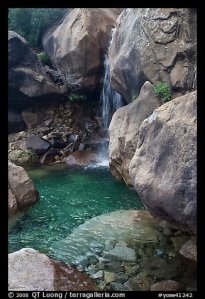‘Lord, that I may see’.
One of the many hazards in driving a car is when you are in the middle lane and another car sneaks up on your left hand side, and then sits in your blind spot! No doubt, you have been in a car or perhaps you have been the driver when this has happened to you? The feeling of shock and horror can cause a weakness in the knees, let alone a reaction to the breaks! If the unfortunate smash occurs, one could be tempted to say: “I didn’t see the car”.
The Gospel reading today is about the cure of a blind man. But the story has far deeper implications than just a person receiving his sight back…this story contains a great challenge to all of us, because it is about the ability to see with the eyes of faith! The whole Gospel story today is a Drama being acted out, about the different levels of seeing with the eyes of faith, and the various stages of growth in faith. So, let’s see if we can get a handle on what is going on in this story, let’s go for an everyday situation like driving the car. Well, spiritually speaking, we all have our own personal blind spots. Lent is a time to have a look at some of these, and in response to God’s grace, we can make steps to develop a clearer vision, so that we may sharpen our insight into seeing the saving hand of God at work in our lives and within the community.
Let’s not skip over the actions that take place in the Gospel story, because they all have a profound meaning on us, for all time. Let’s take note that it was Jesus who saw the man that had been blind from birth. Jesus always sees us; we may think that we are just one in the crowd; no way, Our Lord’s gaze is eternally on each one of us. That in itself can be hard to realise, but it is true, and deep down we can appreciate it, but can we SEE it?
Notice that Jesus makes a paste with the earth….how extraordinary? But let’s stay with this for a minute or two. In Hebrew the generic for ‘homo sapiens’ ( meaning wise man) is ADAM. Where does Adam come from according to the Book of Genesis? MANKIND comes from the adamah! In Hebrew that means the earth! It also implies that it is the ruddy earth, meaning the rich soil of earth. Now the Divine component within the earthen image is the ruah, in Hebrew, that means the creative breath of God. Water is also a special sign of life; being rejuvenated in the primeval waters, new life comes forth. Let’s take note of this when the blind man is sent by Jesus to the Pool of Siloam. So, in John’s Gospel, the Sacramental experience of being born again, being made new, is underlined. Water also had an indelible mark on the corporate mind of our ancestors in faith, e.g. The liberating waters of the Sea of Reeds, the new life as received from the waters of Meribah, the new life offered to the Samaritan Woman, by Jesus in last week’s Gospel. So here we are just scratching the surface of the deep spiritual significance that the elements signify in the Gospel. Now let’s get back to our blindness, and the new creation that God wishes to make in us. Each time we respond to Christ’s invitation to see anew, and to ‘change our hearts’, out faith-insight develops and sharpens.Our sinfulness can be a form of blindness; in recognizing our inner blind spots, is half the battle in getting rid of them. Today’s Gospel makes a very clear point, that the blind man had no problem in admitting his blindness. The amazing thing is that the blind man saw more than the religious leaders could; he gradually saw the the saving hand of God at work, in Jesus; whereas the Pharisees had perfect eyesight, but could not SEE! Jesus called them blind! And sadly, they remained in their blindness, because they refused to acknowledge it. There are many forms of blindness which are just as crippling to the human spirit as being visually impaired. Here are a few examples: Selfishness: this blinds us to the needs of others.Insensitivity: this blinds us to the hurt we are causing others. Snobbery: this blinds us to the equal dignity of others; Pride: this blinds us to our own faults; Prejudice:this blinds us to the truth.Self-centeredness: this blinds us to the beauty of the world around us; Materialism: this blinds us, and makes us numb to spiritual values. Food for thought!

